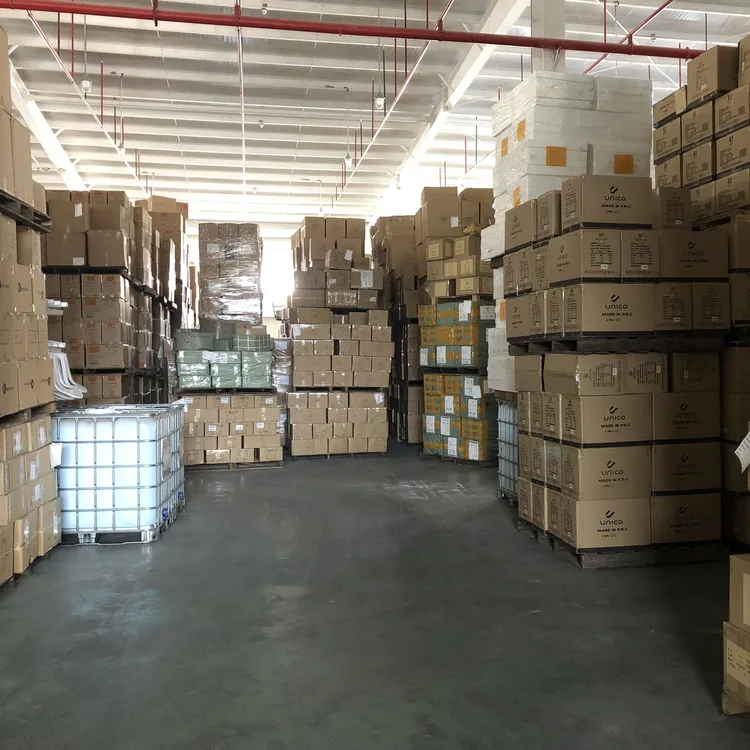
Shipping goods from China to French Guiana requires expertise in European Union (EU) customs regulations, strategic routing, and an understanding of this remote South American territory’s logistical challenges. As an overseas department of France, French Guiana combines EU trade policies with tropical geography, creating unique considerations for importers. Whether exporting machinery, electronics, or consumer goods, partnering with a specialized freight forwarder ensures compliance, cost efficiency, and timely delivery. This guide explores key considerations, from shipping methods and customs requirements to risk mitigation strategies.
- Shipping Methods: Ocean Freight as the Primary Option
French Guiana’s limited infrastructure and geographic isolation make ocean freight the most viable option for most imports:
- Ocean Freight:
The primary mode for 95% of shipments, ocean routes typically transit via the Panama Canal or Suez Canal to Cayenne’s Port of Dégrad des Cannes. Transit times range from 30–45 days for full container load (FCL) shipments. Smaller cargo may require transshipment via European hubs like Hamburg (Germany) or Marseille (France). - Key Ports: Cayenne’s Port of Dégrad des Cannes handles bulk cargo but has limited deep-water capacity, necessitating careful planning for oversized equipment.
- Pro Tip: Schedule shipments 6–8 weeks in advance to account for weather delays and transshipment bottlenecks.
- Air Freight:
Rare and costly, air routes connect Chinese hubs to Cayenne’s Félix Eboué Airport (CAY). Ideal only for high-value, time-sensitive goods (e.g., medical supplies or perishables). - Multimodal Transport:
Combines ocean freight with road transport. Cargo arriving at Cayenne moves inland via RN2 highway to Kourou or Saint-Laurent-du-Maroni. Inland transportation requires specialized trucks for unpaved roads in remote areas.
- Customs Compliance and Documentation
French Guiana follows EU customs regulations, administered by France’s Direction Générale des Finances Publiques (DGFiP). Essential documents include:
- Commercial Invoice: Detailed item descriptions, value, and harmonized system (HS) codes.
- Bill of Lading (B/L): Issued by the carrier, specifying cargo details.
- Certificate of Origin: Confirms manufacturing country; benefits from EU-China trade agreements if applicable.
- Phytosanitary Certificate: Required for agricultural or timber products.
- EORI Declaration: Electronic customs filing via France’s DGFiP system.
The EU imposes average import tariffs of 0–10%, but French Guiana may waive duties for select goods under regional development programs. A freight forwarder manages EORI declarations and ensures compliance with EU sanitary and safety standards (e.g., CE marking).
- Challenges and Solutions for French Guiana Shipments
A. Port Congestion and Infrastructure
Cayenne’s port lacks modern facilities, leading to delays during peak seasons (December–March). Mitigate risks by:
- Using transshipment hubs like Marseille for faster clearance.
- Partnering with forwarders offering bonded warehousing near ports. B. Inland Transportation Complexity
Moving cargo from Cayenne to interior regions (e.g., Kourou Space Center) requires specialized trucks for unpaved roads. Delays occur during rainy seasons (June–November). C. Currency and Payment Risks
French Guiana uses the euro (EUR), but transactions may involve USD contracts for international trade. Use letters of credit to stabilize costs.
- Key Services Offered by Freight Forwarders
A trusted forwarder provides tailored solutions for French Guiana-bound shipments:
- Customs Brokerage: Manages EORI filings, tariff classification, and duty optimization using EU-French Guiana agreements.
- Door-to-Door Logistics: Coordinates port pickup, inland trucking, and last-mile delivery to Cayenne or remote settlements.
- Track-and-Trace Systems: Monitors shipments via DGFiP updates and GPS integration.
- Risk Mitigation: Offers cargo insurance and contingency plans for port strikes or weather disruptions.
- Cost Considerations
Shipping costs are elevated due to distance and limited routes:
- Freight Forwarding Fees: Typically 8–15% of total shipment value.
- Ocean Freight Charges: Include terminal fees (THC) and fuel surcharges.
- Duties and Taxes: Average 5–15% of CIF (Cost, Insurance, Freight) value, influenced by HS codes.
- Inland Transportation: Costs range from $2,500–$7,000 for trucking from Cayenne to Kourou.
Request a detailed quote to avoid hidden fees and optimize budgets.
- Frequently Asked Questions
Q: How do I expedite customs clearance in French Guiana?
A: Pre-register products with DGFiP, use AEO (Authorized Economic Operator) status, and ensure accurate EORI documentation.
Q: What’s the best port for importing bulk cargo?
A: Cayenne’s Port of Dégrad des Cannes is primary, but transshipment via Marseille improves speed for oversized loads.
Q: Are there restrictions on used equipment imports?
A: Yes, used machinery often requires DGFiP inspections and CE certification. Confirm eligibility with your forwarder.
Q: How are perishable goods handled?
A: Air freight with temperature-controlled containers is preferred. Coordinate expedited customs clearance for time-sensitive cargo.
Conclusion
Shipping from China to French Guiana demands expertise in EU customs procedures, regional infrastructure, and seasonal challenges. By partnering with a freight forwarder, businesses gain access to streamlined clearance, cost-efficient routing, and risk management strategies. Whether importing industrial components or humanitarian aid, professional logistics support ensures reliable deliveries to this EU overseas territory.
Optimize Your China-French Guiana Supply Chain
Focus on your core operations while experts handle the intricacies of cross-border shipping—from EORI filings to last-mile delivery. A trusted freight forwarder bridges the gap between global trade and EU compliance.
